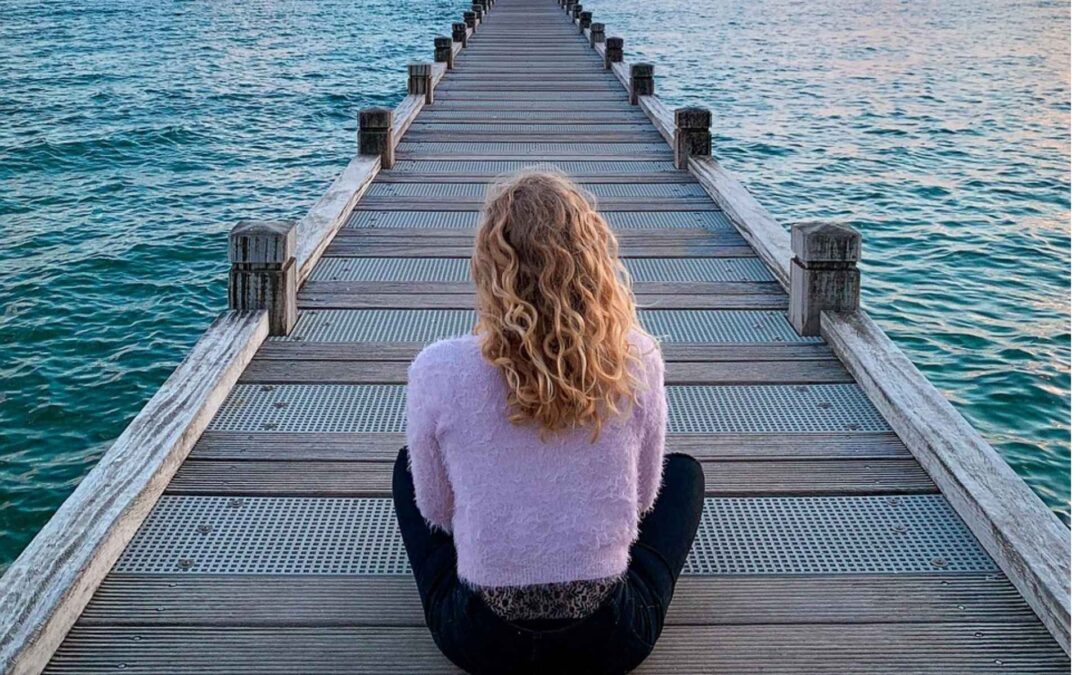There’s something quietly powerful about a story that sinks beneath the surface and speaks straight to the deep questions we ask ourselves: Is life meaningful? Can I change? When the pandemic pressed in with so many unanswerable fears, The Good Place offered a lifeline—not as clinical mental health content, but as something emotionally therapeutic, existential in its reach, and deeply hopeful.
Before the pandemic, I read Sartre’s No Exit in a college theater class. I was captivated by its precision and intensity—the characters trapped in a room, tormenting one another, their shared punishment distilled in Sartre’s famous “Hell is other people.” It was bleak, philosophically sharp, and extremely pessimistic. And yet, intellectually, I loved it.
When lockdown began and the world narrowed into screens and anxieties, I wanted a different story—something that echoed Sartre’s weight but landed somewhere more tender, more hopeful. That’s when I discovered The Good Place. I’d heard it bore some connection to No Exit and craved an alternative ending—one that affirmed the possibility of change.
The Good Place heartily delivered. Rooted as it is in moral philosophy—Aristotle, Kant, utilitarianism, and beyond—it places beloved characters in absurd afterlives where ethical growth, choice, and meaning become central to their existence. Unlike No Exit, these individuals aren’t condemned for eternity. Instead, they’re intentionally flawed beings learning, equivocating, failing, and—most importantly—improving. The show insists that moral effort matters.
That idea intersects beautifully with existential therapy as a mental health approach. Existential therapy invites us to face the core dimensions of human life—death, isolation, freedom, and meaning—and transform the anxiety they provoke into authentic living. It’s less about diagnosing and more about helping people navigate existential concerns with clarity, responsibility, and purpose.
One character who illustrates this perfectly is Chidi Anagonye. Chidi is a professor of moral philosophy whose endless overthinking leaves him paralyzed, unable to make even small decisions without overwhelming anxiety. He embodies what some viewers recognize as similar to existential OCD—a form of obsessive-compulsive disorder where intrusive questions about morality, purpose, or meaning become consuming. People experiencing existential OCD can get caught in loops of doubt: Am I making the “right” choice? Am I a good person? What if I never find the answer? Chidi lives in those loops constantly, his indecision often leaving him immobilized.
What makes The Good Place so powerful is that it doesn’t dismiss or caricature this struggle. Instead, Chidi’s arc demonstrates how growth often comes not from certainty, but from acting despite uncertainty. His moral anxiety is real, and yet he slowly learns to live with it—to choose, to risk being wrong, and to keep moving forward. That’s deeply aligned with existential therapy, which helps people face life’s big questions without demanding neat answers. The goal isn’t to eliminate doubt, but to live meaningfully with it.
During the pandemic, I remember conversations with friends who saw themselves in Chidi—frozen by fear of making mistakes, second-guessing every step, exhausted by moral overthinking. For them, Chidi wasn’t just comic relief; he was a mirror. And watching his small, imperfect progress—his willingness to keep showing up for his friends—gave them hope that their own stuckness wasn’t permanent either.
Therapeutically speaking, the show’s broader message—that even a faulty cosmic system (like the Judge, Michael, or the points-based afterlife bureaucracy) can evolve—aligns deeply with existential therapy’s goals. Existential approaches encourage people to reclaim freedom and responsibility—even amid suffering—and to create meaning rather than discover it passively. The Good Place dramatizes that, turning philosophy into affection, humor, and genuine hope.
I wouldn’t call The Good Place therapy—but it embodies key existential therapy principles: our choices matter, meaning can be made, connections transform us—and yes, even “other people” can be catalysts for change rather than condemnation. In this way, Chidi’s struggle with indecision and moral anxiety becomes an unexpected gift: a reminder that uncertainty doesn’t make us broken. It makes us human.
I still treasure No Exit for its philosophical rigor. But I needed The Good Place for its emotional redemption. It showed—without preaching—that being human includes messiness and meaning, failure and resurgence, isolation and community. In a time when mental health felt fragile for so many, it provided me philosophical comfort.

